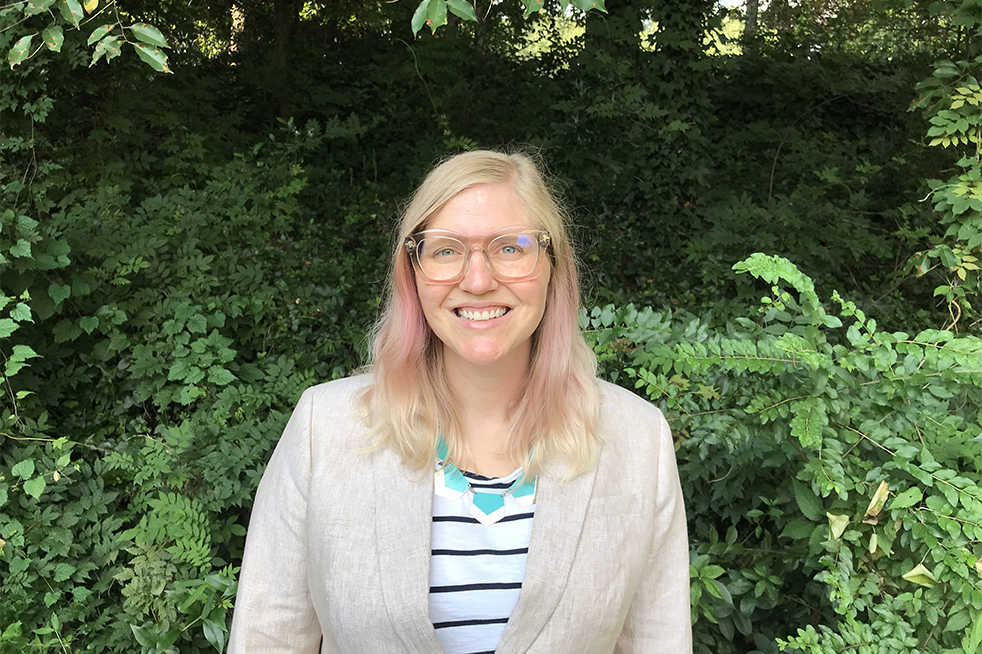When thinking about the future of technology, it is nearly impossible to avoid thoughts of the next complex microprocessor, artificial intelligence or self-driving car. However, to Kera Allen, a Ph.D. student in the School of History and Sociology, it is not the object of technology that is important, but rather its past and future effects on society.
In particular, Allen’s research focuses on how the inequalities present for minorities in the world of STEM are researched and analyzed.
Allen came to Tech as undergraduate and received a degree in Science, Technology, and Culture, now known as LMC. After graduating, she went to work in the software industry as a technical writer and support analyst.
Her early experiences in the industry highlighted the need to better cast light on the inequalities present regarding underrepresented members of the computing and technology workforce. As a result of her experiences, she returned to Tech to earn a Master’s Degree and is currently working on her Ph.D.
“Men make up more than 70 percent of undergraduate students in the College of Engineering and almost 80 percent of students in the College of Computing at Georgia Tech,” said Allen reagarding her decision to continue her education. “I wanted to be able to articulate why and how these differences make an impact on women pursuing degrees in computing and engineering.”
During her studies, Allen has pursued — with the goal of analyzing and sharing — the untold stories of those who those have experienced barriers to success within the computing world.
“I am interested in the stories and experiences of those working with computer technology that are not typically represented in that area, such as women of color. In addition to telling the stories of the more ‘hidden’ figures, I am also interested in revealing the invisible or unwritten barriers, rules and structures that create the inequalities in and around computational technology,” she said.
Currently, many of the initiatives in place to combat the existing barriers are more focused on changing the data outcomes rather than addressing the underlying issues. As Allen shared, progress is fantastic, but it is not a holistic solution.
“There are diversity initiatives and corporate interests for more diverse workplaces; these are often focused on increasing numbers rather than changing the environment to make the technology sector more equitable,” she said. “Numbers are important, but programs should not overlook working conditions and the quality of the workplace.”
The numbers show without a doubt that there are issues facing women in STEM fields; however, this is where the data and the analysis stop.
“I started to notice that much of the existing literature addressing issues of women in STEM did not specifically discuss women of color. For example, a recent survey of more than 200 women in information technology (IT) and computing fields, focusing on women with at least 10 years of experience with most of the women in Silicon Valley, found that 84 percent of women had been told they were too aggressive. However, there was no mention of the racial makeup of the respondents,” Allen said regarding the current state of research in her field. It did not take Allen long to notice that in order for a holistic picture of the issues facing minorities in STEM fields to be created, a greater depth and diversity of data would be necessary. She saw that if change is to take place, more research examining the underlying issues would need to be conducted.
“Without knowing the racial makeup of the survey respondents, it can be difficult to discern if the results are the experiences of white women or women of all races and ethnicities in the field,” she said.
“I hope to describe the factors that contribute to a welcoming and affirming environment for groups with different intersecting identities in order to create a more complex, rich analysis of how different groups experience discrimination,” Allen explained.
Through this research and advocacy, Allen aspires to facilitate meaningful change both within policy as well as within the societal norms which impact the disparities present in the field of computer technology.
“I hope to effectively challenge a hierarchy that produces inequalities in computing and information technology fields, as well as suggest ways for reshaping these fields to better support equality,” Allen shared.
Just as technology is continually evolving, so too are the issues of inequality facing minorities in STEM fields. Through her efforts, however, Allen is dutifully working to change this. Her mission is to share ways in which progress can be made so that the benefits of an advanced and diverse computing workforce may be experienced by many more.
Initiatives that encourage more women — specifically more women of color — to enter computing and STEM fields are important to the progression of STEM fields. These initiatives are also essential to the work of creating more inclusive school and work environments in the future.
Allen’s research will be imperative to understanding how these environments need to change in order to eliminate the barriers for and biases against underrepresented groups in STEM.
By taking an intersectional approach and examining how the systems that work against women of color affect them in a computing environment, Allen’s research will expand the literature about these issues. Because the experiences of all women are not the same, it is important to improve the quality of the data collected about women in IT, computing and other fields to better understand how to improve the quality of the workplace.
Allen hopes her research will identify these issues in order to enable policy changes, bringing more awareness to the systematic inequalities within the field.
